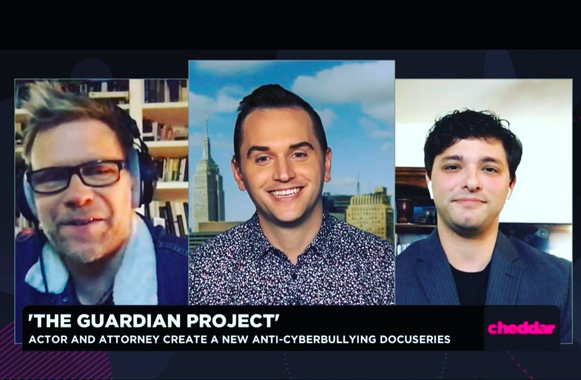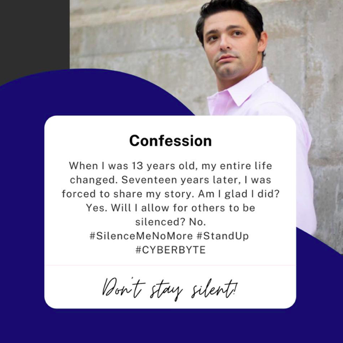Business
Attorney and Media Consultant Andrew Rossow Uses Online Reputation Management to Help Young Hollywood

Today’s content creators have had to fight an uphill battle for maintaining relevance in their respective industries. Since TikTok has emerged as arguably the top content creation platform, age has certainly become a major divider in the influencer space, with millennials and Gen-Z looking to how these young kids are able to captivate their communities instantaneously and impactfully.
But TikTok aside, with everyone online and taking to new video streaming platforms like Clubhouse and Lunchclub, among others, the level of creativity required to “be seen” is exponentially more difficult, compared to what it would have been just a year ago.
Andrew Rossow, a media consultant in Saint Petersburg, Florida officially launched AR Media Consulting, which helps provide visibility to his fellow demographic of young entrepreneurs, academics, and public figures from a wide array of industries. Online reputation management, or ORM, is a necessary component to any brand, small or large. “We all have a story to tell and to do that, requires a constant nurturing of our personal brand, and an understanding of how SEO or search engine optimization works.”
Rossow, 31 is also a licensed attorney, helping clients throughout the State of Ohio navigate through and overcome the dangers the opioid crisis has brought, specifically to the Montgomery County area. Additionally, he teaches as an adjunct cyberspace law professor at The University of Dayton, his alma mater.
Where AR Media excels, according to the millennial CEO, is the vast professional network Rossow has built over the years. “Networking is a skill that simply can’t be taught, and it never ceases to amaze me how lacking our generation is when it comes to making connections,” Rossow says.
“What I’ve been able to do over the years, is develop my own web of professional relationships, built upon trust, cadence, and loyalty. I’m a walking rolodex and that’s value you can’t buy.”
From California and Texas, to Florida, Chicago, and New York, AR Media sees no bounds, having expanded to international markets, including but not limited to Russia, China, Germany, and Belarus. While only recently incorporating AR Media, Rossow has been hard at work since 2016, conducting business purely by word of mouth.
He has worked with a number of high-profile individuals, including but not limited to Kevin Harrington, the original ‘shark’ on ABC’s Shark Tank and founder of the “As Seen On TV” infomercial line, Ritesh Patel, CEO and co-founder of The Ticket Fairy, Nashville’s Jesslee (S14 The Voice), actor Jason Gann (Wilfred on FX), EDM DJ Gareth Emery, Hollywood product agent, Lorenzo Rusin, Billy Ray Cyrus, John Rich of Big & Rich, David McElroy, Pagentri, among others.
But it’s not just Hollywood talent and Silicon Valley’s brightest that Rossow works with, tailoring his expertise to those more unconventional clients–the everyday entrepreneur and academic, including college students, photographers, and data scientists.
“Regardless of the size of your investment portfolio, everyone has a story to tell, and today’s media landscape has made it increasingly difficult for young entrepreneurs to be heard,” Rossow told Big Time Daily. “Social media platforms have made ‘visibility’ even more challenging, unless you are prepared to invest hundreds and potentially thousands of dollars into an Ad Manager.”
The young entrepreneur has appeared on national platforms like Cheddar TV, WFAA ABC, Fox4, and CBS in Dallas. He has also regularly appeared on Dayton’s ABC, FOX, and NBC affiliate networks for his unique insight into trending cybersecurity topics.
“It’s time for everyone to be heard, regardless of the medium,” Rossow emphasized. “My passion is to help jumpstart the careers of those who are inspired to do good for their communities. Whether you are a graduate student in law or medicine, or a rising musician, there’s a story to be told, and you have every right to share it with your followers.”
The problem, according to Rossow, is that everyone is now online and wanting to take their e-commerce and/or personal brands to the next level.
“It’s why we see so many copycats for reputable thought leaders like Gary Vee, Grant Cardone, The Millionaire_Mentor, and Dillon Kivo. These are individuals who understand both the informative and aesthetic aspects of branding. And it’s clearly working. But there are always smaller gaps to fill, left behind by individuals of this caliber, because they’re focused on the bigger picture. AR Media serves to fill in the missing piece to that puzzle, providing a solid branding management team.”
Part of AR Media’s mission is to also teach good digital hygiene to clients as well as other users online. Rossow created #CYBERBYTE, a trademarked anti bullying movement that encourages folks to record short PSAs about standing up against online bullying to their own community of followers.
“By working with others who share in that vision like JessLee’s STRONG program and Bubba Almony’s Bodyguards Against Bullying, we are able to capitalize off one another’s resources to help provide a well-rounded program for those brands focused on community impact.” Taking #CYBERBYTE to the next level, Rossow made an even bigger move earlier this summer, announcing that he was joining forces with TV actor Mark Pellegrino (13 Reasons Why, Supernatural, Being Human, Dexter, Lost) to co-launch The Guardian Project, a multi-tiered attack on the bullying epidemic.
Both Pellegrino and Rossow, who share eerily similar stories with their own personal experiences with bullying, successfully funded their Kickstarter which will go to helping build out the first tier of the project: a docuseries.

Back in May, Rossow released a heart-warming revelation on Thrive Global that his drive for fighting against online-bullying stems from a traumatic experience at a summer camp when he was 13-years-old, where he was sexually assaulted by several members (and counselors) from his cabin. AboveTheLaw’s Brian Cuban, brother to Mark Cuban, spoke with Rossow about how today’s biggest issues involving bullying, #MeToo, and others impact the legal landscape.
“I don’t want anyone to ever feel the isolation and darkness I felt for all those years,” the young attorney explains. “Thankfully with mentors and friends like Brian, I’ve been able to address those demons over the years and help others who are afraid to speak out.”

Source: Instagram | @cyberguyesq
The two anti-bullying activists recently appeared on Cheddar TV, a millennial news network which runs off the floor of the New York Stock Exchange (NYSE). Rossow says that he has been blessed to be one of few who has thrived throughout the pandemic, aiding public relations agencies with their own clients, due to the decrease in resources, as well as film production studios and cannatech startups.
You can contact AR Media by emailing [email protected] and/or visiting the recently created Facebook page.
Business
High Volume, High Value: The Business Logic Behind Black Banx’s Growth

In fintech, success no longer hinges on legacy prestige or brick-and-mortar branches—it’s about speed, scale, and precision. Black Banx, under the leadership of founder and CEO Michael Gastauer, has exemplified this model, turning its high-volume approach into high-value results.
The company’s Q1 2025 performance tells the story: $1.6 billion in pre-tax profit, $4.3 billion in revenue, and 9 million new customers added, bringing its total customer base to 78 million across 180+ countries.
But behind the numbers lies a carefully calibrated business model built for exponential growth. Here’s how Black Banx’s strategy of scale is redefining what profitable banking looks like in the digital age.
Scaling at Speed: Why Volume Matters
Unlike traditional banks, which often focus on deepening relationships with a limited set of customers, Black Banx thrives on breadth and transactional frequency. Its digital infrastructure supports onboarding millions of users instantly, with zero physical presence required. Customers can open accounts within minutes and transact across 28 fiat currencies and 2 cryptocurrencies (Bitcoin and Ethereum) from anywhere in the world.
Each customer interaction—whether it’s a cross-border transfer, crypto exchange, or FX transaction—feeds directly into Black Banx’s revenue engine. At scale, these micro-interactions yield macro results.
Real-Time, Global Payments at the Core
One of Black Banx’s most powerful value propositions is real-time cross-border payments. By enabling instant fund transfers across currencies and countries, the platform removes the frictions associated with SWIFT-based systems and legacy banking networks.
This service, used by individuals and businesses alike, generates:
- Volume-based revenue from transaction fees
- Exchange spreads on currency conversion
- Premium service income from business clients managing international payroll or vendor payments
With operations in underserved regions like Africa, South Asia, and Latin America, Black Banx is not only increasing volume—it’s tapping into fast-growing financial ecosystems overlooked by legacy banks.
The Flywheel Effect of Crypto Integration
Crypto capabilities have added another dimension to the company’s high-volume model. As of Q1 2025, 20% of all Black Banx transactions involved cryptocurrency, including:
- Crypto-to-fiat and fiat-to-crypto exchanges
- Crypto deposits and withdrawals
- Payments using Bitcoin or Ethereum
The crypto integration attracts both retail users and blockchain-native businesses, enabling them to:
- Access traditional banking rails
- Convert assets seamlessly
- Operate with lower transaction fees than those found in standard financial systems
By being one of the few regulated platforms offering full banking and crypto support, Black Banx is monetizing the convergence of two financial worlds.
Optimized for Operational Efficiency
High volume is only profitable when costs are contained—and Black Banx has engineered its operations to be lean from day one. With a cost-to-income ratio of just 63% in Q1 2025, it operates significantly more efficiently than most global banks.
Key enablers of this cost efficiency include:
- AI-driven compliance and customer support
- Cloud-native architecture
- Automated onboarding and KYC processes
- Digital-only servicing without expensive physical infrastructure
The outcome is a platform that not only scales, but does so without sacrificing margin—each new customer contributes to profit rather than diluting it.
Business Clients: The Value Multiplier
While Black Banx’s massive customer base is largely consumer-driven, its business clients are high-value accelerators. From SMEs and startups to crypto firms and global freelancers, businesses use Black Banx for:
- International transactions
- Multi-currency payroll
- Crypto-fiat settlements
- Supplier payments and invoicing
These clients tend to:
- Transact more frequently
- Use a broader range of services
- Generate significantly higher revenue per user
Moreover, Black Banx’s API integrations and tailored enterprise solutions lock in these clients for the long term, reinforcing predictable and scalable growth.
Monetizing the Ecosystem, Not Just the Account
The genius of Black Banx’s model is that it monetizes not just accounts, but entire customer journeys. A user might:
- Onboard in minutes
- Deposit funds from a crypto wallet
- Exchange currencies
- Pay an overseas vendor
- Withdraw to a local bank account
Each of these actions touches a different monetization lever—FX spread, transaction fee, crypto conversion, or premium service charge. With 78 million customers doing variations of this at global scale, the cumulative financial impact becomes immense.
Strategic Expansion, Not Blind Growth
Unlike many fintechs that chase customer acquisition without a clear monetization path, Black Banx aligns its growth with strategic market opportunities. Its expansion into underbanked and high-demand markets ensures that:
- Customer acquisition costs stay low
- Services meet genuine needs (e.g., cross-border income, crypto access)
- Revenue per user grows over time
It’s not just about acquiring more customers—it’s about acquiring the right customers, in the right markets, with the right needs.
The Future Belongs to Scalable Banking
Black Banx’s ability to transform high-volume engagement into high-value profitability is more than just a fintech success—it’s a signal of what the future of banking looks like. In a world where agility, efficiency, and inclusion define competitive advantage, Black Banx has created a blueprint for digital banking dominance.
With $1.6 billion in quarterly profit, nearly 80 million users, and services that span the globe and the blockchain, the company is no longer just scaling—it’s compounding. Each new user, each transaction, and each feature builds upon the last.
This is not the story of a bank growing.
This is the story of a bank accelerating.
-

 Tech4 years ago
Tech4 years agoEffuel Reviews (2021) – Effuel ECO OBD2 Saves Fuel, and Reduce Gas Cost? Effuel Customer Reviews
-

 Tech6 years ago
Tech6 years agoBosch Power Tools India Launches ‘Cordless Matlab Bosch’ Campaign to Demonstrate the Power of Cordless
-

 Lifestyle6 years ago
Lifestyle6 years agoCatholic Cases App brings Church’s Moral Teachings to Androids and iPhones
-

 Lifestyle4 years ago
Lifestyle4 years agoEast Side Hype x Billionaire Boys Club. Hottest New Streetwear Releases in Utah.
-

 Tech7 years ago
Tech7 years agoCloud Buyers & Investors to Profit in the Future
-

 Lifestyle5 years ago
Lifestyle5 years agoThe Midas of Cosmetic Dermatology: Dr. Simon Ourian
-

 Health6 years ago
Health6 years agoCBDistillery Review: Is it a scam?
-

 Entertainment6 years ago
Entertainment6 years agoAvengers Endgame now Available on 123Movies for Download & Streaming for Free
